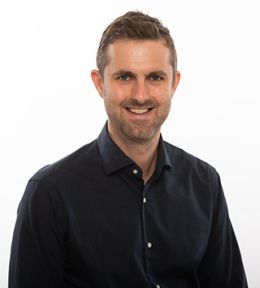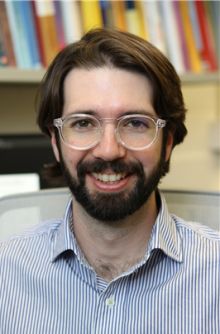MMAE Seminar Series: Andres Goza
The Department of Mechanical, Materials, and Aerospace Engineering presents their spring 2024 seminar series featuring guest speaker Andres Goza, an assistant professor at University of Illinois at Urbana-Champaign, who will present, “A Proper Orthogonal Decomposition (POD) That Accounts for Periodic Large-Scale Behavior.” This seminar is open to the public and will take place on Wednesday, April 24, 2024, from 3:30–4:30 p.m. in room 104 of the Rettaliata Engineering Center.
Abstract
There are many flows that in which smaller scale features are driven by motion of a nearly periodic larger, dominant scale, including separated flows, flows involving rotating machinery, and wakes behind bluff bodies. Traditional data-driven decomposition techniques inefficiently handle the nearly periodic motion of this large-scale structure, unhelpfully conveying its behavior as a large number of “distinct modes.” Apart from the inherent inefficiency of this representation, this outcome also complicates understanding of any behavior tethered to this large-scale motion. Rather than creating distinct modes that represent distinct physical processes (i.e., a mode for the large scale, one for small scales associated with a specific physical process, and so on), the various modes used to describe the large scale also contain features of smaller scale behavior driven by the large scale. We discuss a formalism that moves towards remedying this issue. The approach is a formal proper orthogonal decomposition and inherits the optimality properties of that decomposition. The proposed method leverages a dynamical systems perspective to characterize the quasi-periodic motion of the large scale, and the proper orthogonal decomposition is performed with respect to a nominal periodic trajectory identified through this dynamical systems representation. The result: (i) more clearly distinguishes the large-scale process as a distinct phenomena/mode, (ii) yields less energetic (higher index) modes that are informed by the phase of the large scale. We demonstrate the method’s utility through results of low Reynolds number incompressible flow past a flat plate and of turbulent compressible flow past a composite cone-cylinder arrangement.
Biography
Andres Goza is an assistant professor at University of Illinois at Urbana-Champaign. The Goza et al. research team that he leads uses computational techniques to simulate and understand fluid flows, often involving complex, heterogeneous structures. Goza et al. have received money through NSF, AFOSR, DARPA, Sandia, and from within UIUC to fund their efforts.
Event Contact



